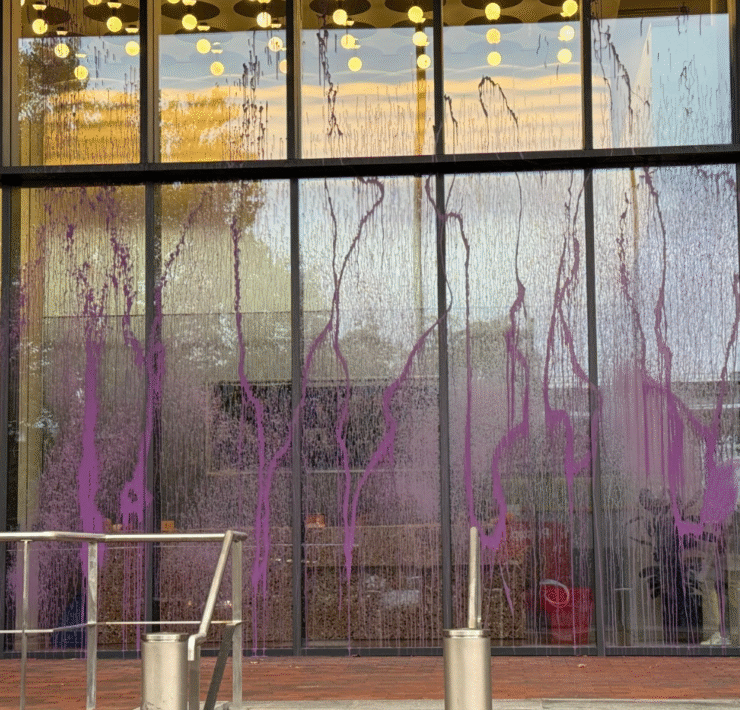Homelessness, Addiction, and the Trans Community

Substance addiction carries a strong social stigma, and people with addictions often struggle to access treatment and care. For transgender people, the barriers are even higher.
In a study by the National Center for Transgender Equality, 26 percent of participants said they had abused drugs or alcohol, compared to 9 percent of the general population. Most transgender respondents stated their abuse was a means of coping with mistreatment due to their gender identity. Rates were higher among transgender people who reported being physically attacked due to bias, being sexually assaulted, or losing a job due to discrimination.
Dr. Alex Castro, a Denver-based psychologist who specializes in substance abuse counseling and treating LGBTQ clients, explained that for many transgender people, using drugs is a means of coping with the alienation they feel from their bodies.
“If I am female in a male body and I absolutely hate being in my body, I know that if I use cocaine, if I use ecstasy or meth, it’s going to alleviate how I feel about my body and my relationship to my body, I will engage in that,” Castro said. “Or I absolutely hate my body and can’t tolerate it, so I use depressants to detach and dissociate from the relationship I have with it.”
Castro also said that many transgender clients struggle to receive treatment because they have a hard time finding mental health practitioners who are culturally competent about transgender issues and also trained to deal with addiction. He described one patient who left her therapist to come to his practice because she felt like she was teaching her therapist more than the therapist was teaching her. A survey from advocacy group One Colorado reported that more than half of transgender Coloradans have been refused service by a healthcare provider, and some reported traveling over 100 miles to seek services from an LGBTQ-friendly provider.
There are an estimated 20,850 transgender people living in Colorado, according to a 2016 survey from the Williams Institute. That makes up 0.53 percent of the state’s population, and puts Colorado 27th in population concentration of transgender folks nationwide.
Transgender people in Colorado have higher rates of marijuana use, binge drinking, recreational prescription drug use, heroin, cocaine, and methamphetamine use than the general population, according to a 2014 report.
The idea that social stigma can be a driver of poor physical and mental health is called minority stress theory. The theory posits that exposure to stressors such as discrimination, prejudice, and lack of social support accumulate over time, and can eventually lead to health issues including high blood pressure, addiction, and mental illnesses. For example, a study on minority stress from the American Journal of Public Health reported that 44 percent of transgender people struggled with clinical depression stemming from social stigma.
Transgender people are widely reported to have much higher rates of mental health issues than the general population. A 2014 study found that on average, 41 percent of transgender people have attempted suicide, an astronomical proportion. Rates were higher among transgender people who reported being HIV positive, having a disability, or who experienced housing discrimination.
Laura Rossbert, deputy director of the Delores Project, a Denver homeless shelter that serves women and transgender individuals, said that identifying how mental health, addiction, and homelessness influence each other is a chicken-or-the-egg problem.
“If someone has extreme trauma as a child, they’re more likely to have heart disease and substance abuse problems and experience homelessness,” she said. “It’s really hard to be a victim of discrimination for any reason, and because of past traumas and life experiences, individuals cope in ways that they have access to.”
Homelessness can compound coping mechanisms for discrimination, making them more damaging.
“If you’re experiencing homelessness, you’re going to grab a bottle of vodka because you can carry it around; once you’re housed you often switch to something like beer because you have a place to store it,” Rossbert said. “For individuals [dealing with trauma], experiencing homelessness makes even their coping experiences more problematic.”
Stevie Pinkerton, a gay man, client, and volunteer at the Harm Reduction Action Center in Denver, said that having an addiction is much more difficult when homeless.
“To be homeless and an addict, there is far more stigma attached to that than an individual who is an addict but not homeless,” he said. “Homelessness is looked at as disgusting.”
According to the Metro Denver Homelessness Initiative, people who identify as transgender make up 0.4 percent of homeless people in the Denver metro and 1 percent of those who are chronically homeless. In Denver, the Delores Project and the Gathering Place, a daytime drop-in center for women and transgender people, both serve transgender people experiencing homelessness. However, The Gathering Place does not have overnight shelter, and the Delores Project is “always at capacity,” Rossbert said.
Housing is vital for people experiencing homelessness, but housing discrimination can be a barrier for trans people trying to get back on their feet after homelessness and addiction, and it can keep them trapped in dangerous or unhealthy living situation. According to a 2015 study, 23 percent of transgender Coloradans experienced a form of housing discrimination in the past year, and 30 percent were homeless at some point in their lives. A quarter of those experiencing homelessness said they avoided living in a shelter for fear of discrimination, and 70 percent of those who did live in a shelter reported some form of discrimination or harassment.
Xunflour Jonez, a transgender woman and former heroin user who now works as an advocate HRAC, was homeless for four months after getting out of jail on a drug charge this year while she tried to find an apartment. She described an incident where she had been talking to a landlord on the phone and arrived to meet him at the apartment with the rent money in her hand.
But when she got there, “He literally took one look at me and turned around and walked away,” Jonez said.
Jonez finally found an apartment in Denver and said that she is relieved to be off the streets.
“It’s not easy to be transgender and homeless,” she added.










